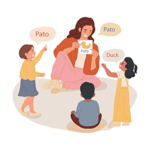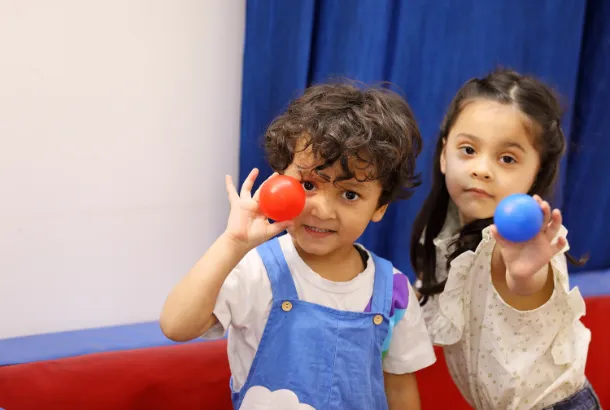

4.7 Stars
Google Ratings
15000+
Satisfied Parents
300+
Certified Therapists
30+
Centers
Continua Kids is a trusted child development center where children can learn and grow. This center helps children who might be struggling with daily life challenges involved with learning, speaking, moving around, or recognizing emotions. The experts at Continua Kids work lovingly and carefully, taking care of each child’s unique needs so that he or she can realize their maximum potential.
If you’re wondering about the child’s best development center, the best choice to go for is the Continua Kids. With experienced professionals, they offer assistance to children. We offer a wide array of services to Children such as speech therapy, occupational therapy, ABA therapy, physiotherapy, and special education, which cover a range of therapy services aimed at strengthening key skills and boosting self-growth.
The staff at the child development clinic keeps a track on children's growth and development. The team set out a special plan for individual children who need more help. With encouragement, this kind of plan helps a child to make progress.
Continua Kids is where a lot of happy and loving children feel welcomed and secure. Every small thing where everyone excels is noticed and celebrated, with all the kids allowed to grow at a pace that suits them. If you are searching for the best child development center Continua Kids is the ideal place to begin your child’s journey and develop a brighter future.
We have a team of specialized doctors that provides individualized treatment plans, and a nurturing environment for your child's holistic development.
We offer complete autism therapy. Our services offer a variety of treatment options such as special education, speech, occupational, behavioural, and ABA to help with skill development.

Applied Behavior Analysis is a proven way of ensuring children acquire important skills and develop healthy behaviors.Read More...

Occupational therapy majors with pediatric occupational therapists being adequately trained professionals who use their exemplary skills and knowledge of children to develop essential skills and strategies to excel in their home and community environments.Read More...

Enhancing communication skills with tailored speech therapy, helping every voice find its confidence, with speech therapists providing the support.Read More...

Enhancing communication skills with tailored speech therapy, helping every voice find its confidence, with speech therapists providing the support.Read More...

Enhancing communication skills with tailored speech therapy, helping every voice find its confidence, with speech therapists providing the support.Read More...
Kids with ASD find it challenging to connect to people. They generally avoid eye contact, repeat actions and lack emotional intelligence.

Dyslexia is a learning disability that disrupts how your brain processes written language. It’s very treatable and doesn’t have to stand in the way of success.

Testimonials
My daughter came to continua when she was2.8 year , we visited Dr puja and she recommended OT ,ABA , Speech .today I am taking my daughter back she has improved a lot and shown commendable improvement . For OT therapy we are very thankful to muskaan mam , for speech -raza sir had put lot of efforts to make my child speak under the guidance of BK sir , for ABA Meenakshi mam have done marvelous job with my child and made her confident to speak with to and fro conversation under the guidance of Aarushi mam .All therapist and supervisor was very helpful and profession in behavior .

SNINTERNET ZONE
★★★★★